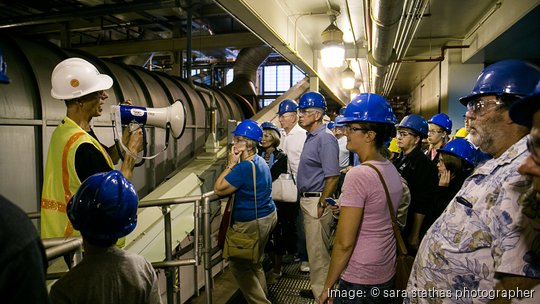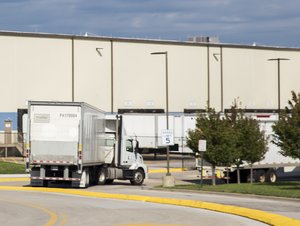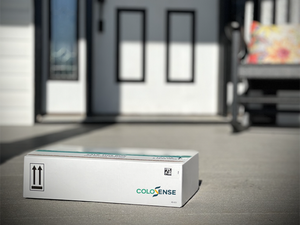
The Milwaukee Metropolitan Sewerage District is spending $13 million to build out a research lab at its Oak Creek reclamation facility to test new wastewater treatment technologies.
Once the lab is ready, the project will kick off with the large-scale testing of two emerging filtration technologies over two years. The lab will also allow water-technology businesses, universities, scientists and inventors to partner with the district to test new concepts and ideas on a large scale at a working treatment plant.
“This facility marks the latest progression in Milwaukee’s long history of wastewater and water technology innovation,” MMSD Executive Director Kevin Shafer said in a press release. “The new technologies have incredible potential to increase energy reuse, improve filtration, prevent sewer overflows, and save millions of dollars for ratepayers.”
The two technologies to be tested first are types of filtering processes that could replace parts of the four-step wastewater treatment process that uses several large settlement tanks and chemical processing, said Matt Magruder, environmental research manager for MMSD.
The technologies have never been tested in the U.S. at the scale that MMSD will deploy them, he said.
"That's why we are going to do a pilot demonstration on both of the technologies in parallel against our existing system to make sure that we make a responsible decision and translate the results into the design and construction of the facility after the pilot test," Magruder said.
If either technology proves feasible, and are implemented at just one of MMSD's two regional treatment plants, it could save $90 million over 20 years, require fewer use of chemicals and drive reduced sewer overflows and basement backups because water can be moved more rapidly through the system while enhancing the treatment process, Magruder said.
The filtering technologies also operate in a vastly smaller footprint that the settling process requires with its multiple large tanks, thereby saving space while expanding capacity to process wastewater, he said.
Currently, solid waste from the current system is processed using anaerobic digesters to produce a biogas that provides most of the energy needs for MMSD's Oak Creek's facility, said Bill Graffin, public information manager for MMSD. Either one of the filtering technologies will produce more solid waste and more biogas.
The two-year pilot study has received a $3.9 million grant from the U.S. Department of Energy and a $1.2 million grant from the U.S. Environmental Protection Agency. Grants will offset funding from MMSD's capital budget, Magruder said.
The Water Council in Milwaukee sees a further benefit from the project. The global industry hub has applied for a U.S. National Science Foundation Regional Innovation Engine grant designed to fund partnerships between academia and industry working on innovation.
The Water + Energy Forward engine aims to develop and scale technologies and processes to help manufacturers and utilities become more resilient and sustainable. It's led by Milwaukee-based nonprofit The Water Council and a consortium of universities, nonprofits, utilities, and industry. It's expected to bring up to $160 million in National Science Foundation funds to eastern Wisconsin over the next 10 years.
Since MMSD's testing facility will allow other partners and researchers to pilot new wastewater technologies that are applicable to small- and medium-sized utilities, it demonstrates how other organizations can contribute — with either in-kind or financial contributions — to innovation in this area, according to a spokeswoman for the Water Council. The NSF will take those kinds of contributions into account when evaluating applications for funding.
Construction on the research facility is expected to begin in 2026. The primary filtration technologies being tested will likely replace the current process used in the second stage of wastewater treatment called primary clarification.
At MMSD’s South Shore Water Reclamation Facility, the primary clarifiers went into service in 1968, with most supporting equipment being replaced nearly 20 years ago. The supporting equipment is nearing the end of its useful life.







